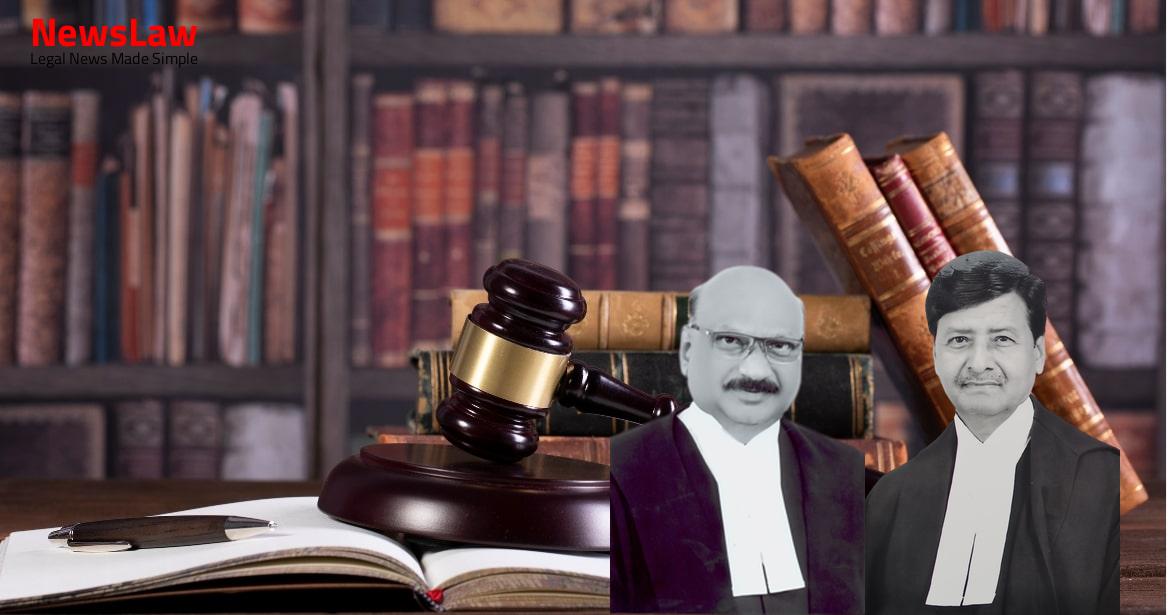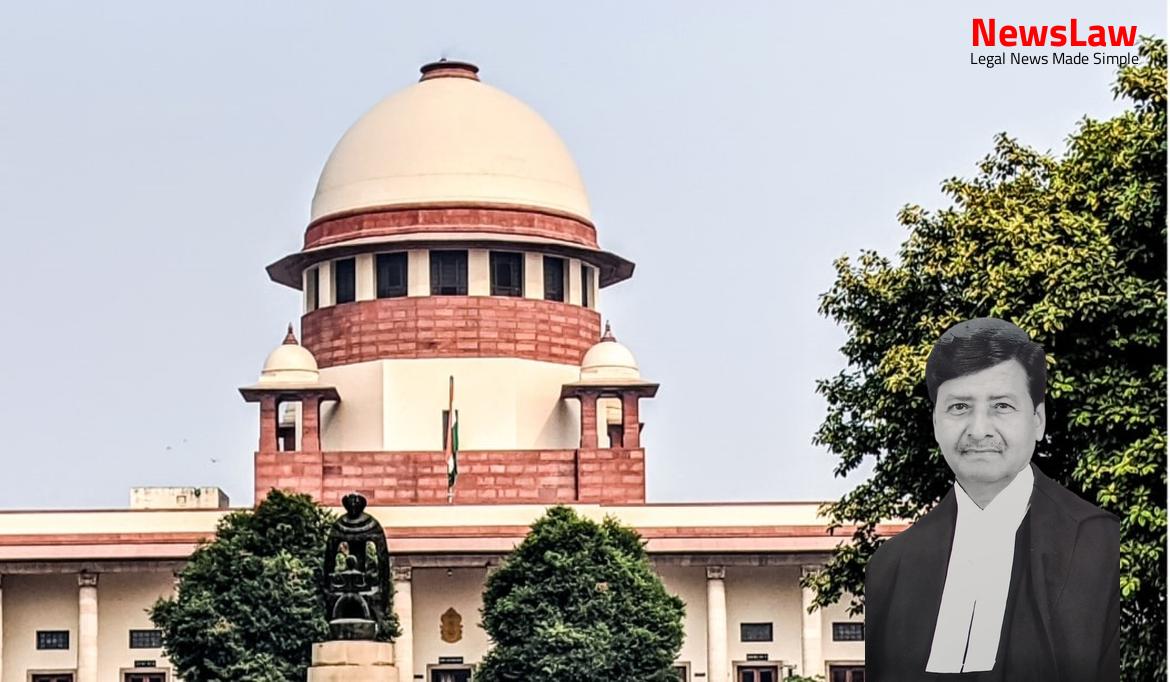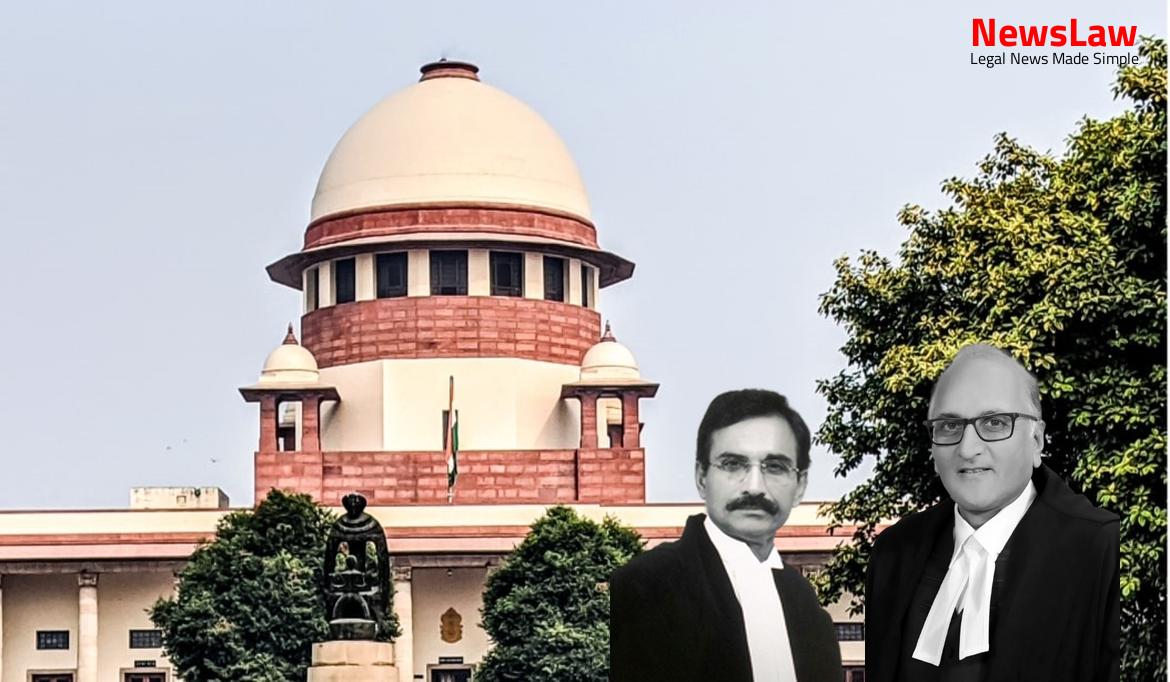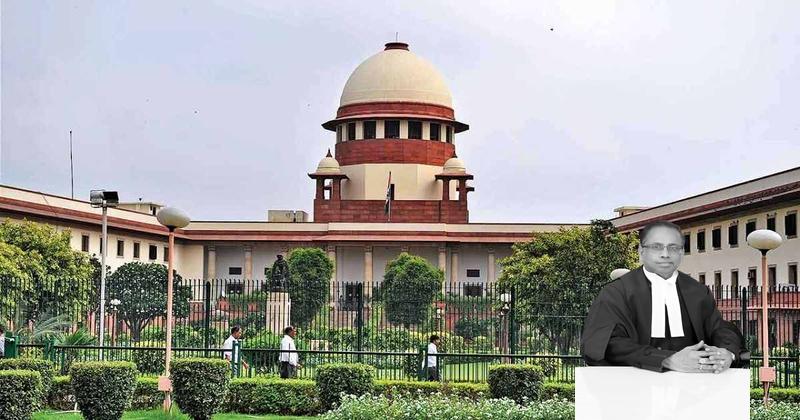In a significant legal battle over land ownership, the Supreme Court of India recently issued a judgment in the case of plaintiff-first respondent against the appellant-defendant. The dispute revolves around the cancellation of a sale deed and the authenticity of a power of attorney related to inherited property. The Court addressed the crucial issue of burden of proof in this complex case.
Facts
- First respondent filed a suit against the defendant for cancellation of a sale deed dated 10 May, 1995.
- Plaintiff claimed ownership and possession of the property in question inherited from her father.
- Alleged that defendant prepared a forged power of attorney in plaintiff’s name to sell the property at a lower price.
- Plaintiff asserted the sale deed was never acted upon as she had not received the full sale consideration.
- Trial court framed multiple issues including cancellation of sale deed, authenticity of power of attorney, ownership, and possession.
- Both parties presented oral and documentary evidence in defense.
- Defendants in the suit were identified as the sons of plaintiff’s great grandfather.
- Various legal contentions were raised by both parties during the trial.
- The trial Judge dismissed the suit filed by the plaintiff-first respondent on 19 January, 2001.
- The first appeal was also dismissed on 27 August, 2001.
- The High Court admitted the second appeal based on substantial questions of law regarding burden of proof on the plaintiff/appellant.
- The High Court, considering the plaintiff-first respondent as an illiterate lady, placed burden of proof on the appellant-defendant.
- The burden was placed on the appellant-defendant to prove that the alleged power of attorney was not a result of fraud and misrepresentation.
- The High Court set aside the judgments of the lower Courts and remitted the matter back for a fresh decision.
Also Read: Restitution Order in the Case of Temple Management: High Court vs. State
Arguments
- The copy of the plaint filed by the plaintiff-first respondent does not mention her as a pardanasheen illiterate lady.
- The High Court’s examination of the plaintiff’s status as a pardanasheen illiterate lady is considered unsustainable due to the lack of pleading on record.
- The trial Judge framed issues based on the pleadings on record, all of which were decided against the plaintiff-first respondent.
- The High Court erred in shifting the burden of proof on the appellant-first defendant to establish that the document was explained to the plaintiff-first respondent, as it was not mentioned in the pleadings.
- The burden of proof should have been on the defendant-appellant to establish the genuineness of the power of attorney
- The plaintiff-first respondent is a pardanasheen illiterate lady, making it challenging for her to prove the forgery herself
- The trial judge erred in placing the burden of proof on the plaintiff-first respondent
- The High Court correctly identified this error in their judgment
- No further interference from this Court is warranted in this matter
Also Read: Land Dispute: Legal Battle between Smt. Harinder Singh Ghuman and Lt. Col. Paramjit Singh Dhillon
Analysis
- The High Court admitted the appeal without factual foundation and framed two substantial questions of law not supported by pleadings on record
- The plaintiff-first respondent filed Suit No. 155 of 1996 before the Civil Judge (J.D.), Roorkee
- The plaint did not mention that the plaintiff-first respondent is a pardanasheen illiterate lady
- The plaint instead alleged a conspiracy by defendant nos. 1, 2, and 3 to grab the plaintiff’s land
- A power of attorney was prepared and registered in the plaintiff’s name on 25 April 1995, leading to the sale of the suit land
- In the ordinary course, the burden of proof lies on the party attacking
- The plaint did not establish that the lady was a pardanasheen illiterate entitled to protection of law.
- The burden of proof regarding alleged fraud in the power of attorney was on the defendant.
- The High Court erred in reversing the concurrent findings of the lower courts.
- The judgment was found to be not sustainable due to this error.
Also Read: Land Dispute Resolution: Supreme Court Judgement on Intervention in Trust Sale Proceedings
Decision
- The appeal succeeded and was allowed.
- Any pending application(s) were disposed of.
- No costs were awarded in the case.
- The judgment of the High Court in the second appeal dated 18 August, 2008 was set aside.
Case Title: ALI HUSSAIN (D) THR. LRS. Vs. RABIYA
Case Number: C.A. No.-007137-007137 / 2010



